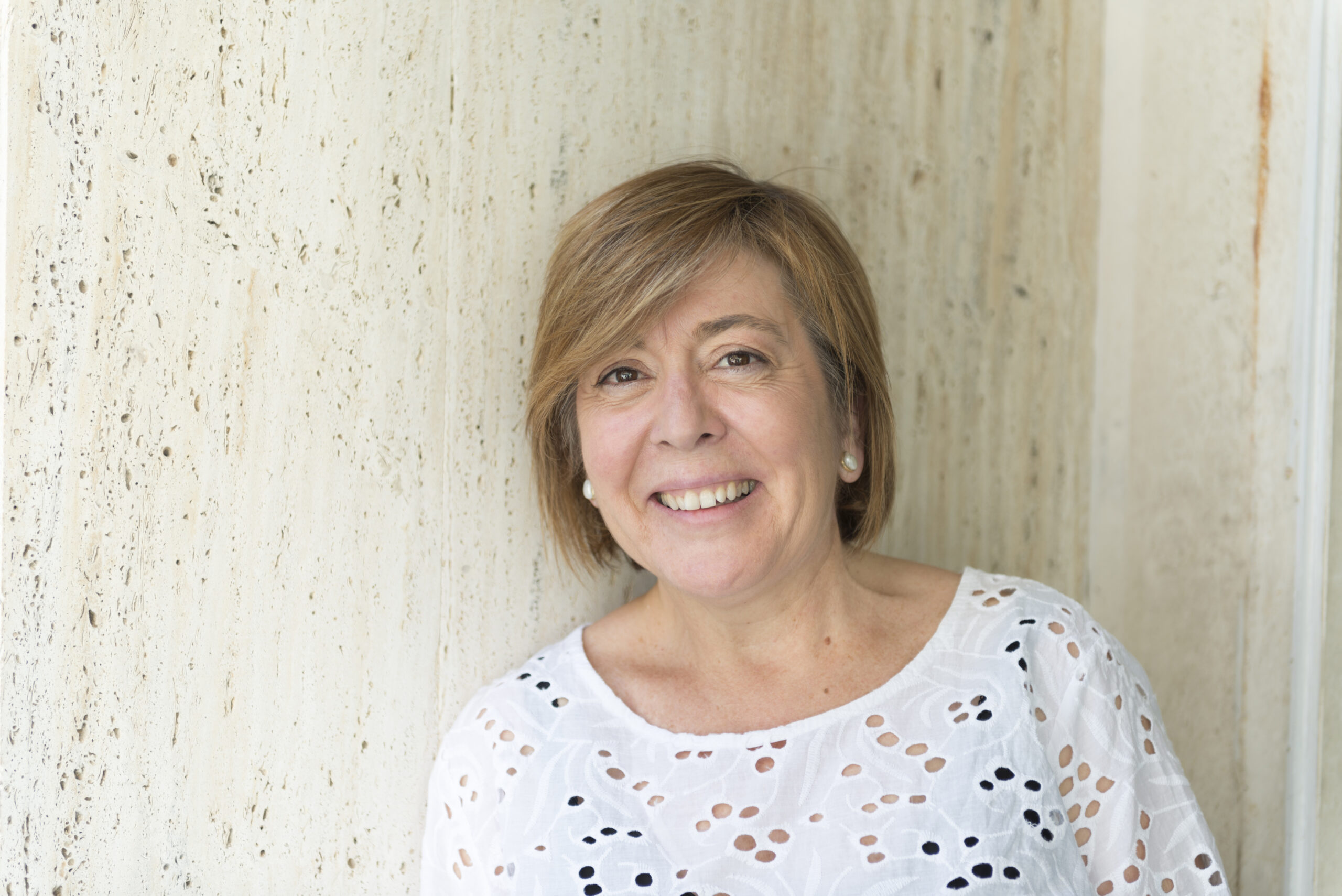Linguistics Professor Wins Award for Social Justice for Her Work to Make Spanish Courses More Inclusive
Cristina Sanz, professor of linguistics in the Department of Spanish & Portuguese, was awarded the AAUSC Innovation in Language Program Direction Award for Inclusion and Social Justice in the fall of last year. Her efforts around equity and inclusion through her work as a teacher, her dedication as chair and language program director and her research in various aspects of Spanish learning has helped to promote the vision of the university.
Advancing Justice
Recently, as a result of changes to language requirements at Georgetown, Sanz, who directs the Spanish Intensive and Spanish for SFS programs, took this opportunity to completely revamp the curriculum of the third-year advanced Spanish courses.
From her work, four new and innovative courses emerged, with goals, content, tasks and assessment rubrics newly tailored to match the needs of the students and to reflect this moment in history.
“The new curriculum explores historical, sociocultural and geopolitical topics from a transatlantic perspective, thus connecting the Americas and Spain through shared social justice challenges that are both local and global, such as gender and race discrimination,” says Sanz. “The transatlantic approach corrects an injustice built into the previous advanced language sequence, which gave the same curricular time to Spain as to the whole of Spanish-speaking America, a hand-me-down of Europe’s colonialist past that failed to prepare students for their future careers.”
Sanz also explains that the new courses continually promote awareness and concrete action against structures of political, social and economic power that marginalize historically oppressed communities.
“For example, one weeks-long unit explores how different minoritized communities, such as Afro-Latinos or the LGTBQ+ community, suffer discrimination, both legal and social,” she elaborates. “During this unit, students critically analyze texts to learn how laws enacted in Latin America and Spain, at best, have made societies only slightly fairer or, at worst, have further marginalized these communities. Students then look for ways to somehow change the status quo.”
Looking Forward
In the future, the professor plans to continue to work to advance racial and social justice at the university through her teaching, service and research.
In her graduate course, Sanz has included speakers and a whole unit on critical language pedagogy that helps her doctoral students and future academics prepare to continually promote awareness and concrete action through their teaching against structures of political, social and economic power that marginalize historically oppressed communities.
She also plans to work with her colleagues to prioritize minorities in the graduate admissions process and to ensure that her research engages with other academics and practitioners to understand first and then to improve heritage language learners of Spanish’s experience while studying abroad.
“Through keynotes and publications, I drive the field’s attention to the pedagogical needs of minorities,” she says. “LatinX students differ greatly in terms of language proficiency, as some speak it, understand it, or simply view it as part of their family background. Their learning goals differ in important ways. They are also incredibly diverse in terms of social class, ethnic and racial backgrounds, national origins and connections with them and it is important to acknowledge this.”
Sanz was assisted in her work by doctoral students Tim McCormick (GSAS’20) and Jorge Mendez Seijas (GSAS’19) with support from the School of Foreign Service. Mendez Seijas is now at Harvard redesigning their language curriculum, applying what he learned during his time at Georgetown.
She said that she was particularly thrilled to receive this award after learning that the other awardee was her former student Germán Zárate-Sández (GSAS’15). Now an associate professor and language program director at Western Michigan University, Zarate is working to improve the experience of Black and African American students enrolled in Spanish courses.
“It’s the gift that keeps on giving: we shape professionals that share their expertise beyond the university,” says Sanz.
-by Shelby Roller (G’19)
